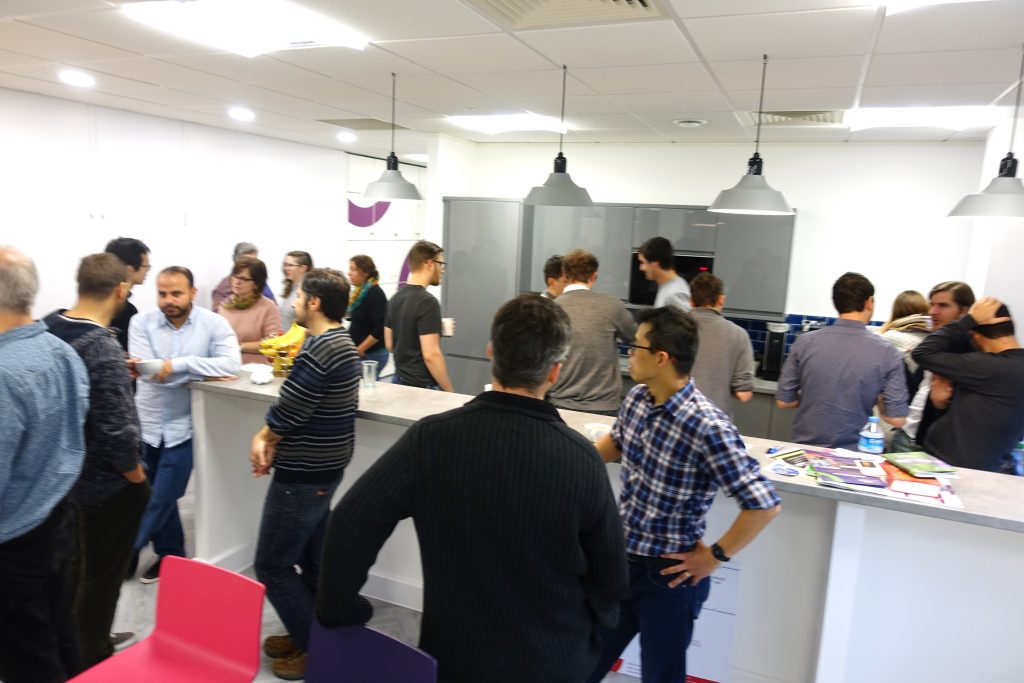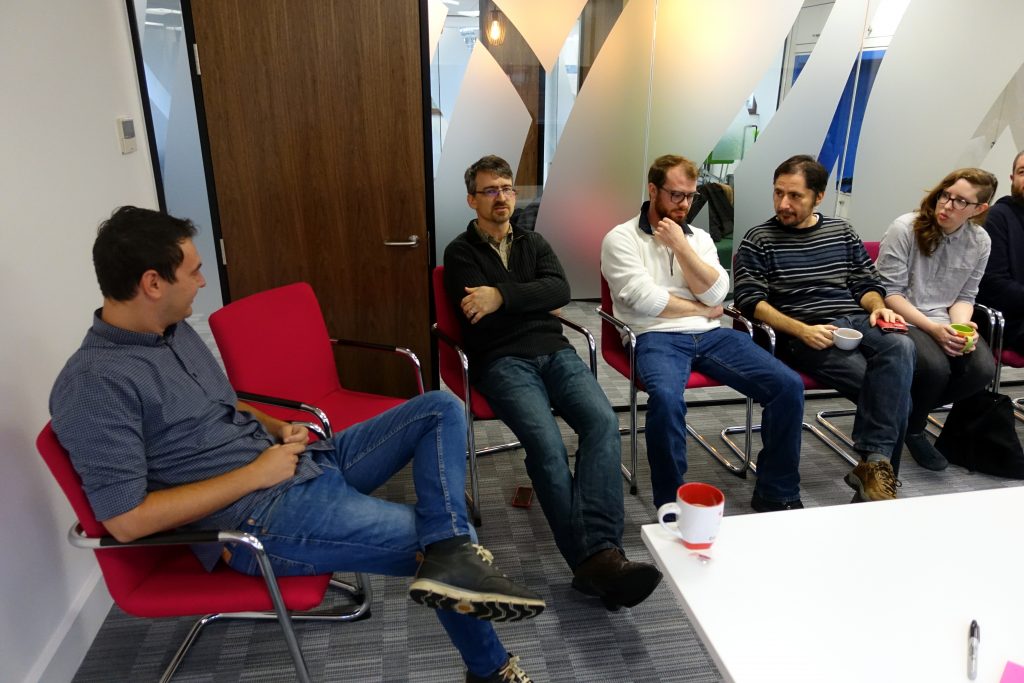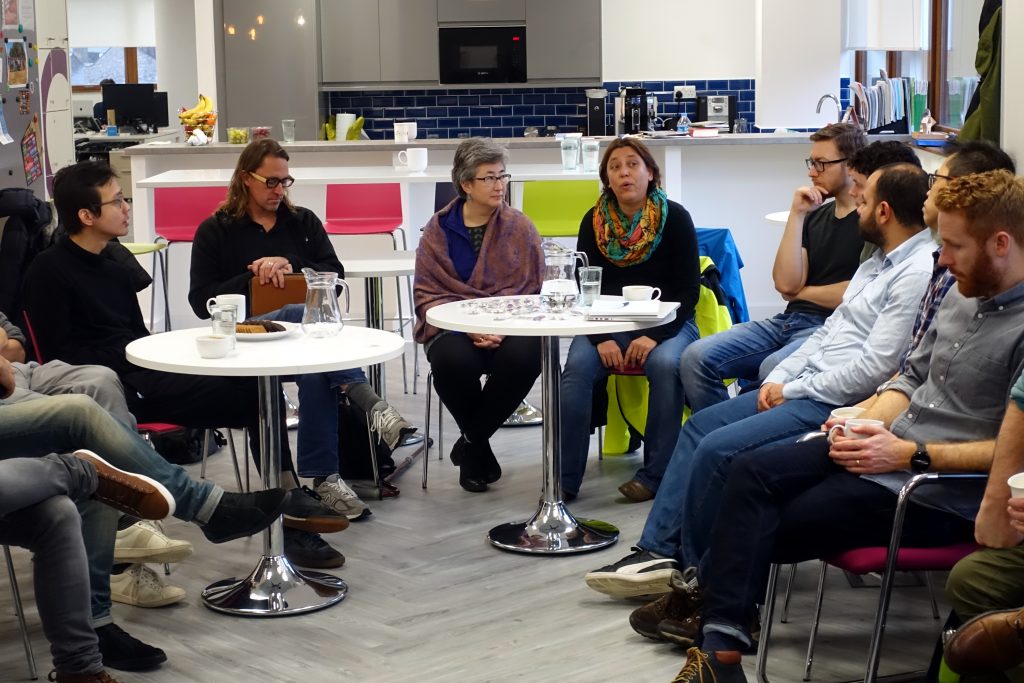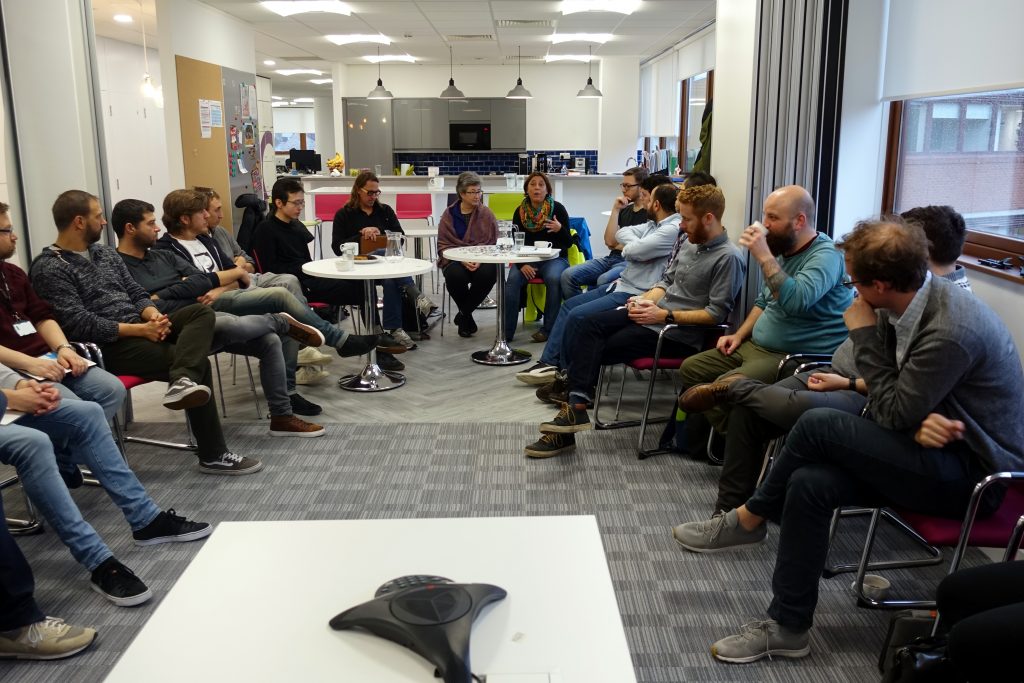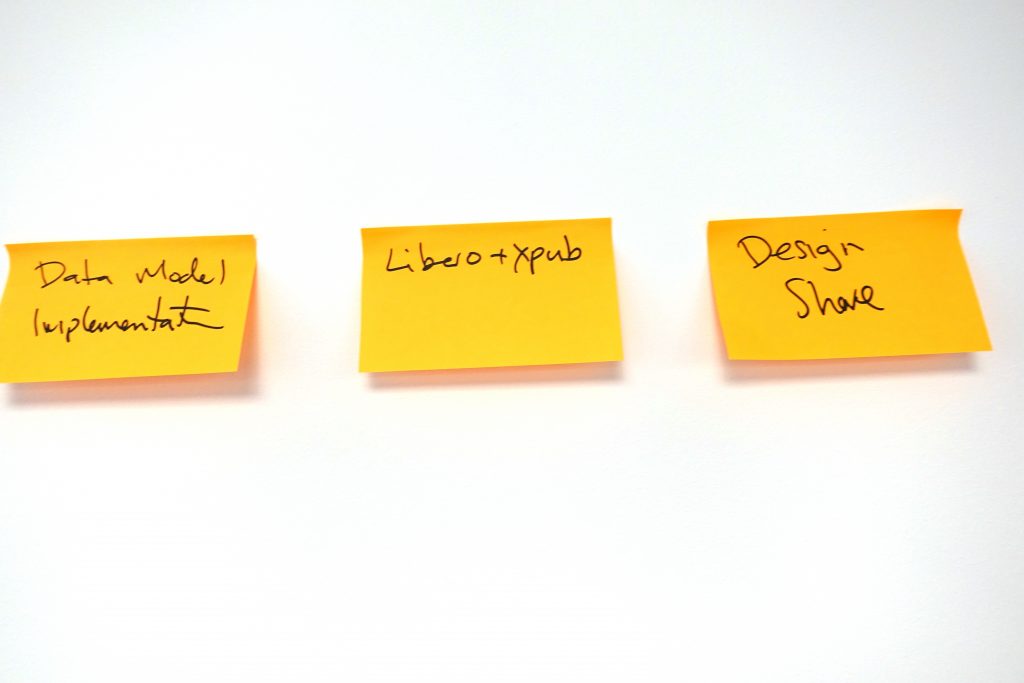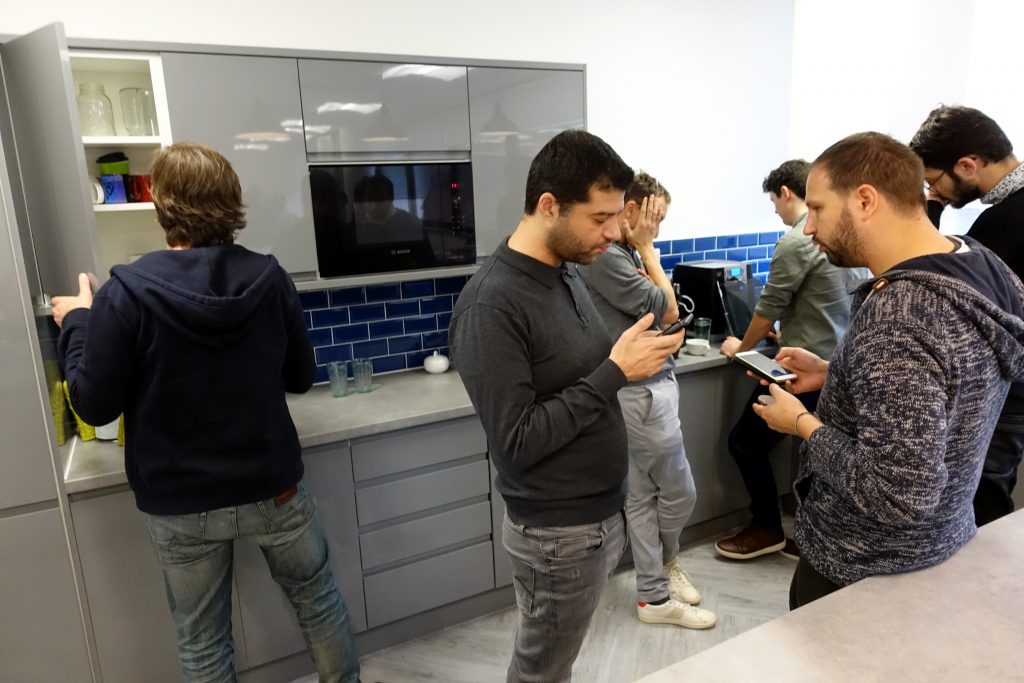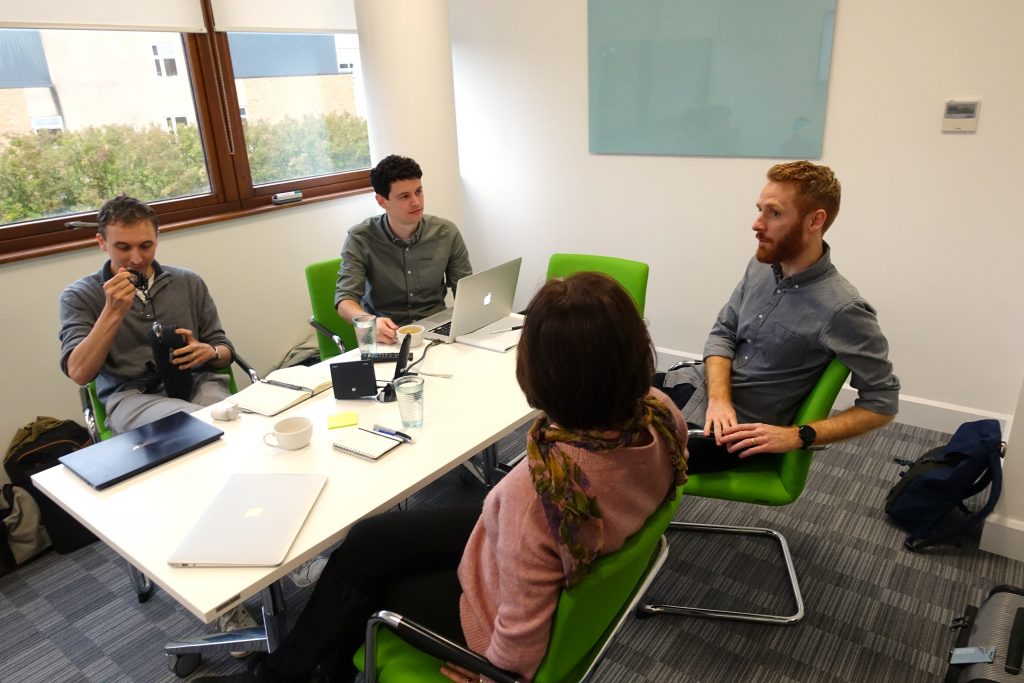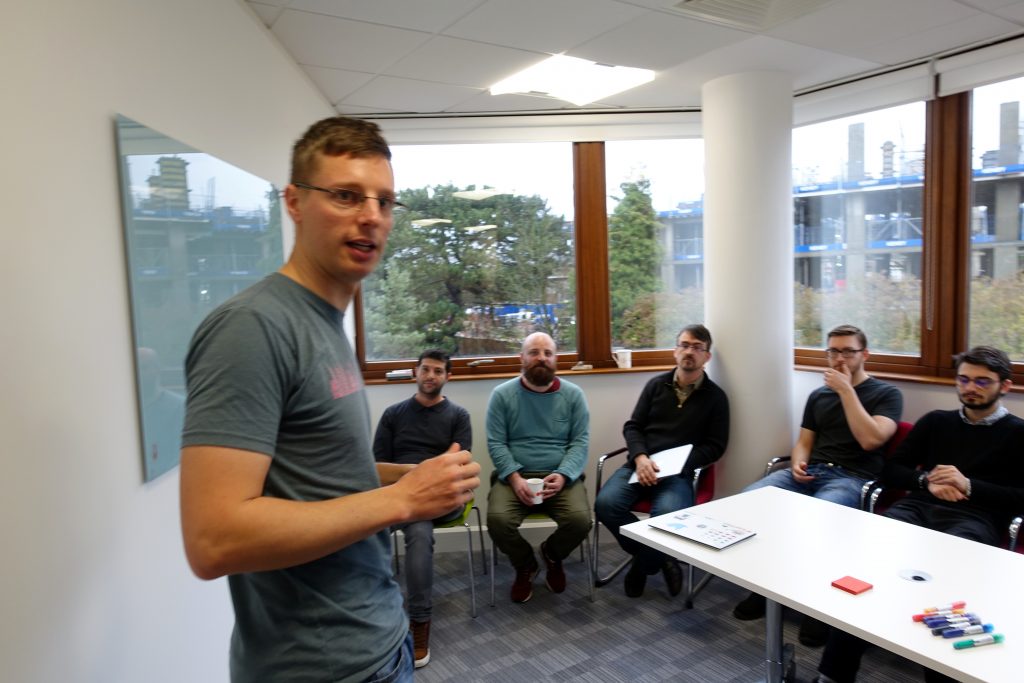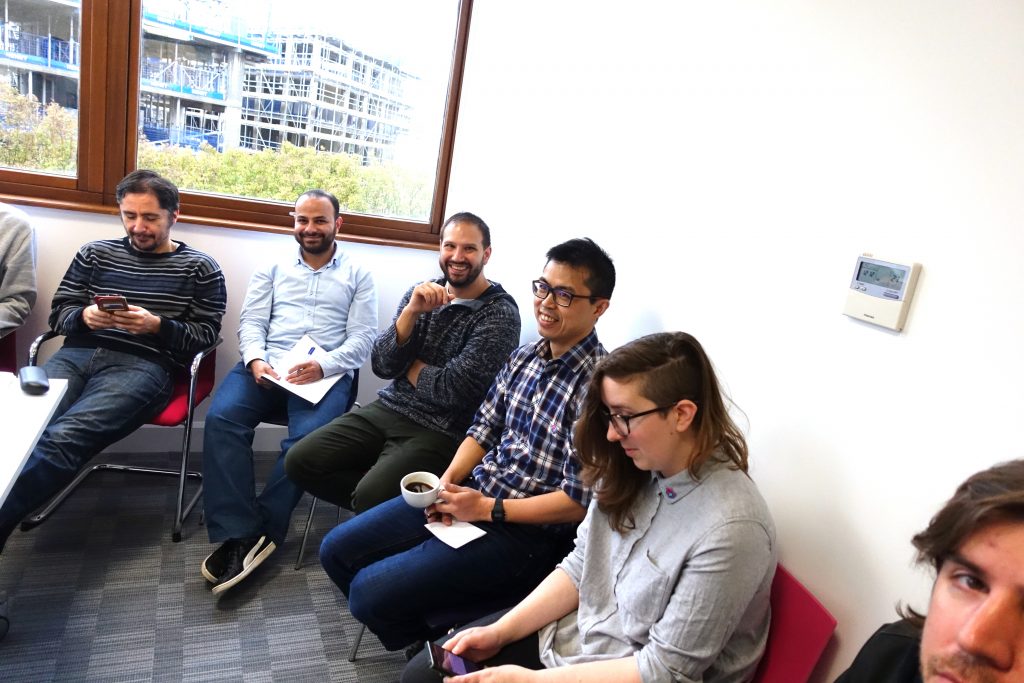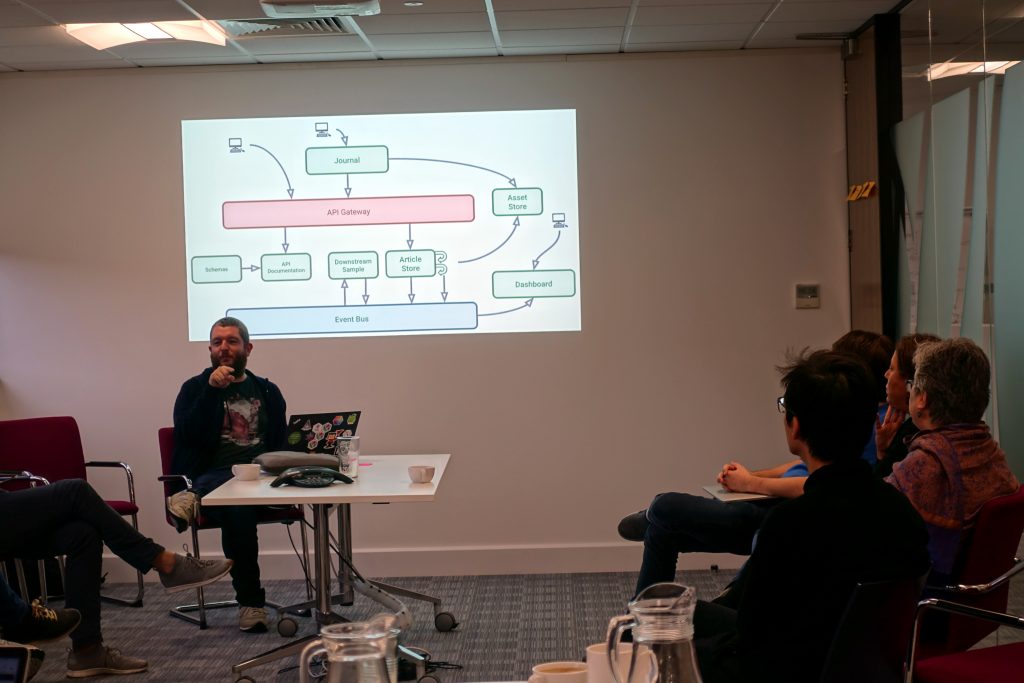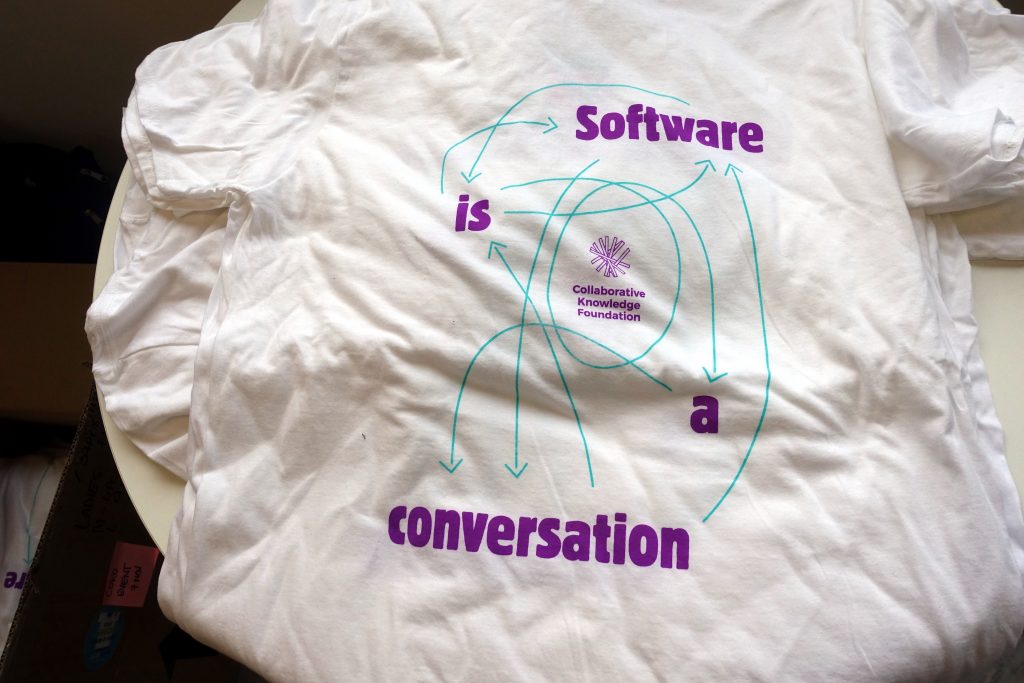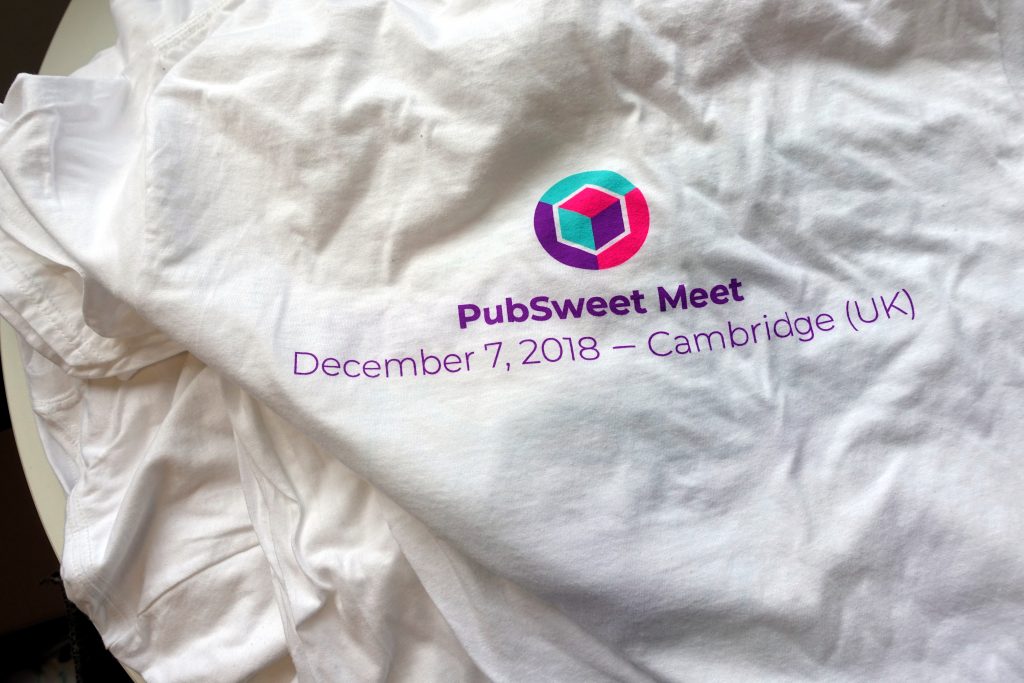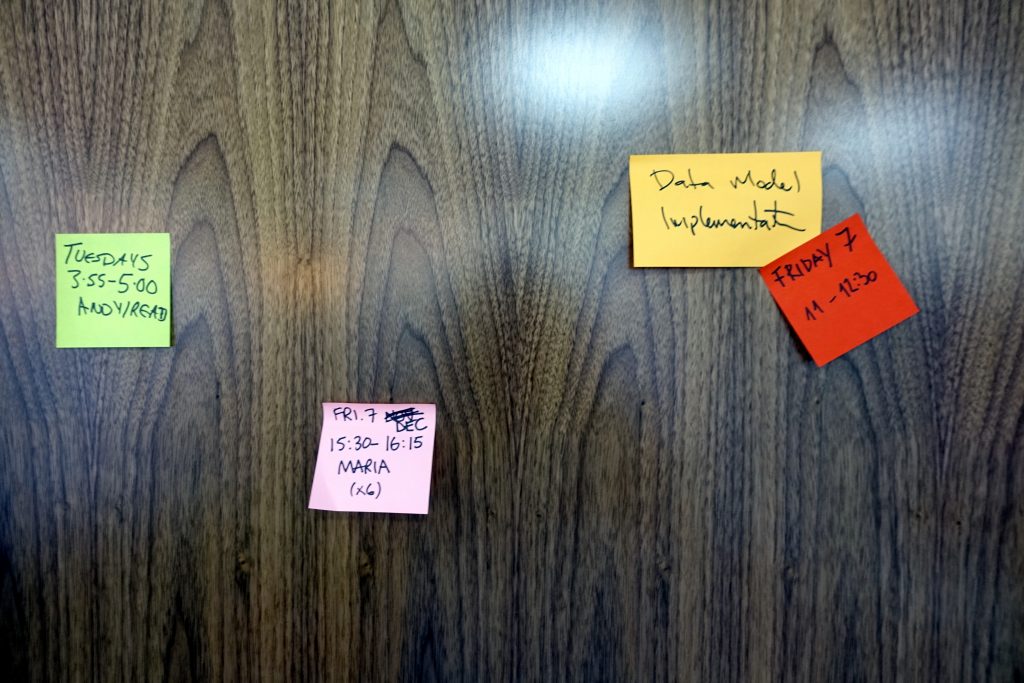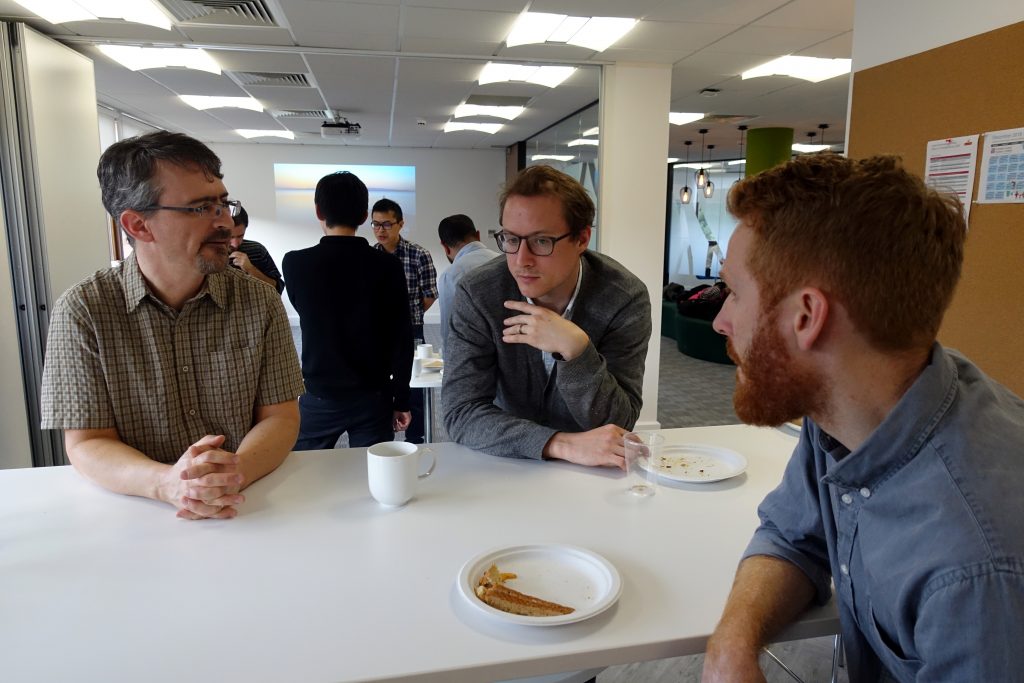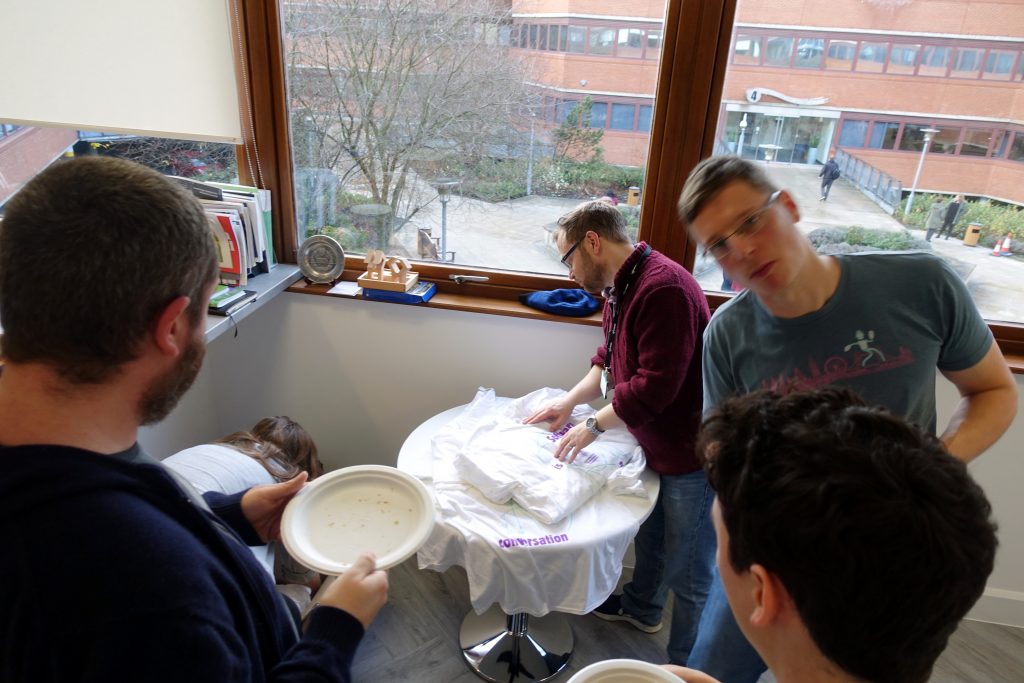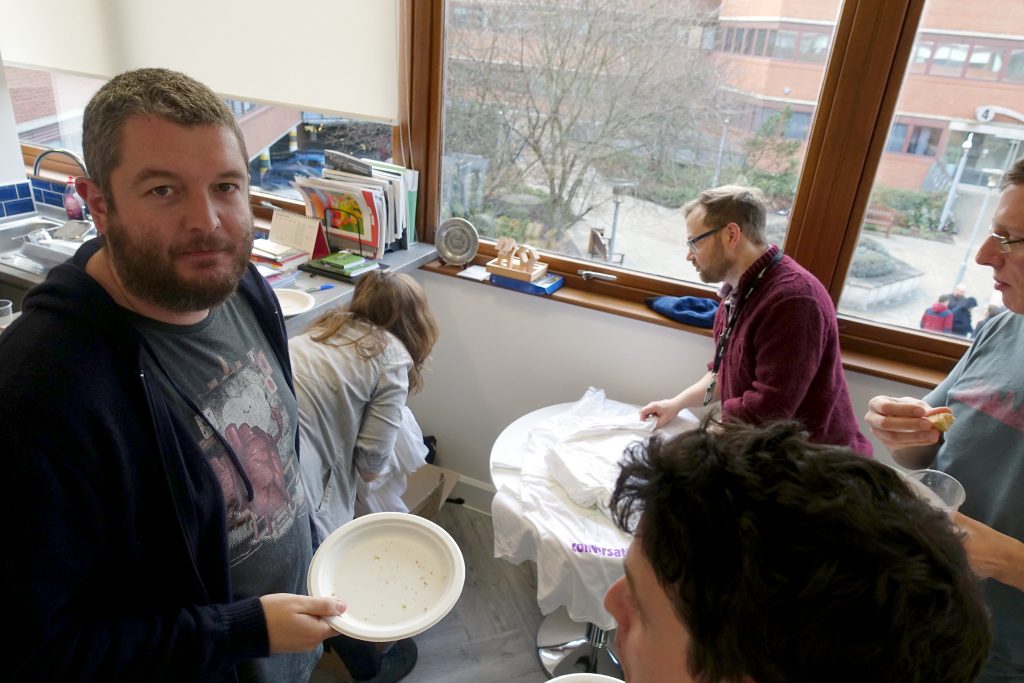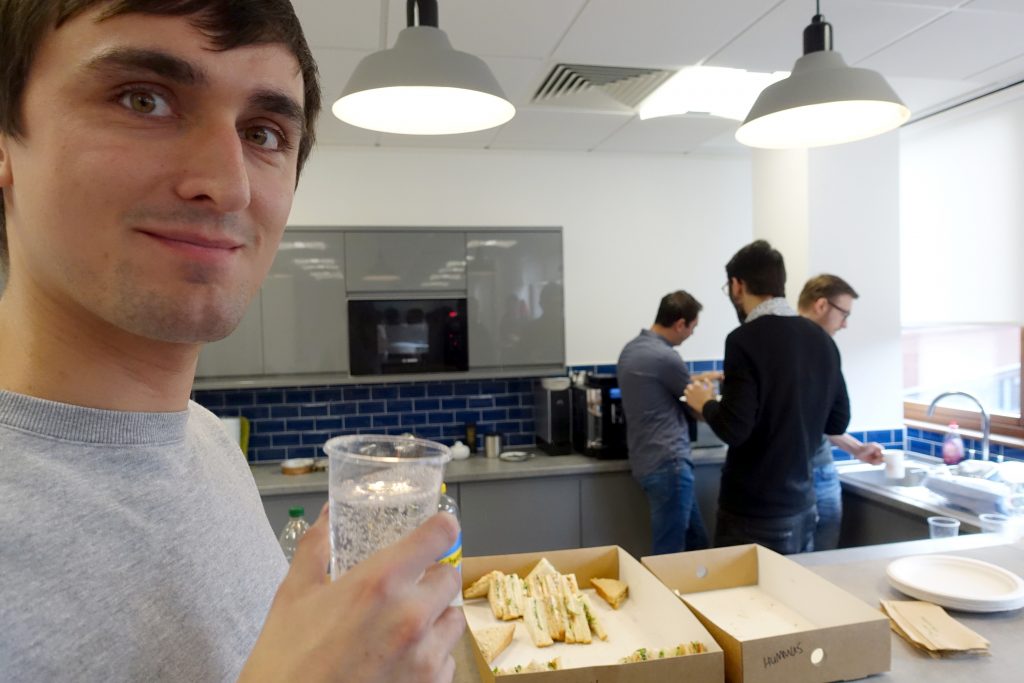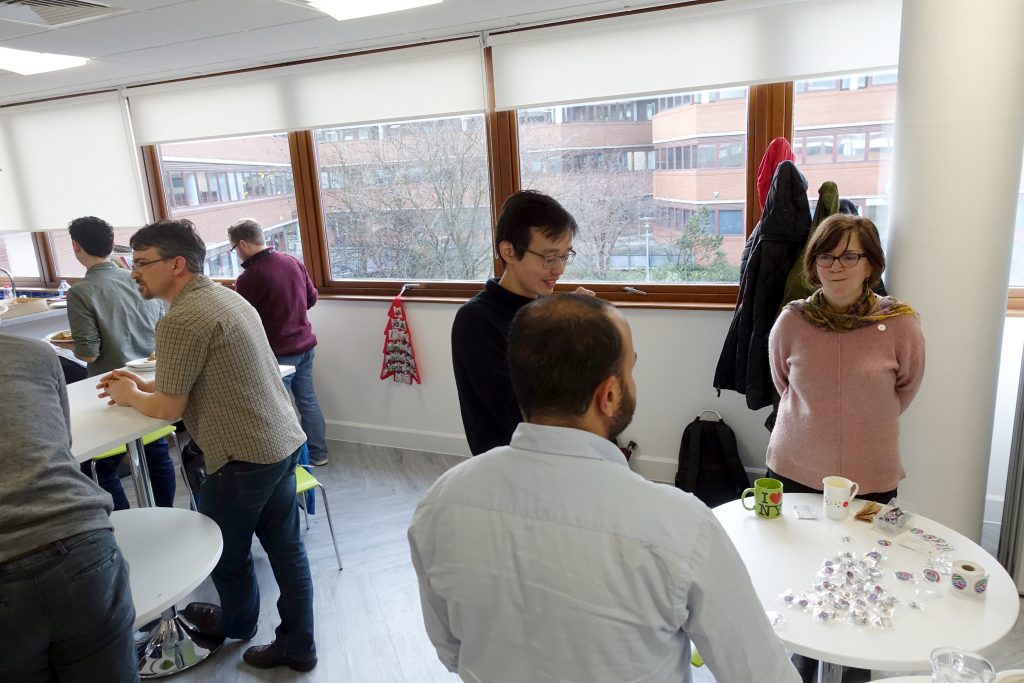“This month, a second Hindawi journal will move onto the Phenom Review system, our new peer review platform built entirely open source. Phenom
Review is part of Hindawi’s collaboration with Coko utilizing their open source PubSweet framework. […] The migration of our remaining 230 journals is expected to be completed early in the new year.”
Category: PubSweet
EPMC going live soon!
Awesome news from the wonderful people at EPMC. They have been building their submission system on top of PubSweet.
Europe PMC is getting ready to release an upgraded version of Europe PMC plus, a system for PIs supported by Europe PMC funders to submit accepted manuscripts for inclusion in Europe PMC and PMC. The new version of Europe PMC plus has an improved design, and new features for creating and reviewing manuscript submissions.
The new Europe PMC plus will be released on 1 May 2019.
More info here : http://blog.europepmc.org/2019/03/New-Europe-PMC-plus.html
eLife announces the launch of their PubSweet-based platform
Publishing Platforms built with PubSweet
I get asked a lot how many platforms are there built on top of PubSweet. It can be quite difficult to understand this by looking at the Coko website. So here goes (we might add to the below and put it on the Coko site).
Hindawi
Hindawi is currently considering names for the journal platform it currently has in production, plus they are building more than one platform. First up is their journal platform, currently in production for their first journal. It is a low volume journal, with 20 submissions so far and 1 article which has gone through the entire process and been accepted for publication.
Hindawi are looking to make the platform multi-tenanted – which is a often misused/misunderstood phrase, but essentially it points to a strategy for adapting the software so that one organisation can run multiple journals from the same (singular) install/instance. Hindawi then will be going live with the second journal in the near future. They are leading the charge in the Coko community on this multi-tenanted approach and we continue to learn a lot from this amazing team of folks.
On top of this Hindawi are building a QA platform on top of PubSweet. All of which is open source and available to whoever wants it. They went live within a year of beginning to build. Notably the first to go into production with a PubSweet Journal platform.
After gaining this experience (building their first PubSweet Journal platform) they scaled their team up to 18 people working on different PubSweet developments.
eLife
eLife have a special issue where they wish to replace their current platform – EJP – but in phases. So they have been working closely with the EJP team to replace the workflow step by step. The first step has been to replace the submission workflow. Now 60% of all submissions go through their PubSweet submission component and then the article is transitioned into EJP via an EJP API (recently built). The content is transferred between the two systems using a MECA bundle, representing the first time MECA has been used in the world in a live use case. The MECA component is, of course, is open source and available to anyone building a PubSweet platform. They went live with the submission app in just over a year of beginning to build.
eLife is building out their entire workflow as a series of inter-connected PubSweet apps. This means you can grab one part of their system and integrate it in your workflow. Its an interesting strategy.
The cool thing about the Coko community is that we have a variety of approaches to similar problems so it will be interesting to see how attractive the multiple app proposition is to others. They will name each standalone app with the prefix Libero (eg Libero Publisher, Libero Review etc). All is open source.
It has to be noted that EJP’s position is a very enlightened one and fantastic to see a forward-looking vendor working with a Coko community member. I am sure this is going to work out in their favor going forward. I think the number of folks working on these platform components for eLife is maybe 6-10 … will ask Paul and check.
EBI
Lead by the very awesome Audrey Hamelers, the EBI (European Bioinformatics Institute) platform is going live in May with their system. They are intending to flick the switch and go from 0 to 100. The platform looks awesome and it is essentially a multiple source post-publish QA system for content aggregation (pushing to EPMC). It supports manual input through a submission wizard as well as batch FTP upload/submission. Although built specifically for their workflow it is conceivable the platform could be used for any workflow requiring post acceptance/production QA.
They have done some cool stuff with annotations using Nick Stennings Annotator, to QA XML. They are also using XSweet for docx to HTML conversion and a whole lot of other interesting tech. EBI have built this extremely quickly, with most of it done in a couple of months. Other priorities got in the way and they had to pause for a few months, but even so, if they go live in May it will be done in under a year from starting. I think they have a small dev team of about 3-5.
EBI has most of the Coko community meets. Awesome folks. All open source.
Editoria
Editoria is developed by the Coko team. A fully fledged post-acquisition book production workflow. It was developed with the University of California Press and the Californian Digital Library. Editoria is now used in production by UCP, ATLA, Punctum Books and Book Sprints. There is a fledgling but healthy community evolving around the product as well as a forthcoming hosting vendor agreement (tba). All open source. Editoria has a small team of (currently) 2 devs working on the core Editoria platform, however much more horsepower is added when you consider dev done on CSS stylesheets, paged.js, XSweet (docx to HTML conversion) and Wax (editor). So really the team is more like 6.
Micropublications
The wonderful wormbase crew commissioned the Coko team to develop a micropublications platform for their micropublications.org project. It follows a simple micropubs workflow which has been designed and built to allow for its re-purposing by any micropubs use case. When it gets down to it however the line between a journal workflow and a micropubs workflow (even tho micropubs is a broadly used and misused term) is a little imaginary. The two look very similar, the real difference is the scope of material submitted and the intention to process it quickly. This platform could probably also be used for journal submissions.
It has been in active dev for a year. Unsure when we will go live, it will probably be a progressively live situation with the initial switch being thrown sometime this year. All open source. Currently one (extremely productive) Coko dev.
Aperture
Another micropubs platform, dev just just begun with one person. It is a platform built for the Organisation of Human Brain Mapping. Awesome folks. I did a workflow sprint with them last year. Cool people and this will be a cool platform. Most interesting is their desire to publish living entities eg Jupyter Notebooks. Super interesting. All open source.
Pre-Review
Built by the pre-review folks and most specifically by Coko friend Rik Smith Unna. Great chap. This is a pre-print review system built to replace their current system that was built ontop of Authorea. All open source. One current dev (Rik).
Digital Science
A new addition – their innovations team is building a very interesting awards system. That in itself isn’t so exciting but their idea is to build a system with configurable workflows. You model a workflow, export, and then the PubSweet app is automatically compiled to suit. Very ambitious and very speculative. A lot to be learned from this and the good thing is that it is all open source and the DS folks are great to work with. Looking forward to see how this evolves. I think there is one developer currently working on this.
Xpub-Collabra
Xpub-collabra is a journal platform the Coko dev team have developed with Dan Morgan from the Collabra Psychology journal. We have put one year dev into it but with just one developer working on it. I’ve decided to pause dev for a little while so we can accelerate other efforts. Our platform dev team is small and we need to maximise resources, and as eLife and Hindawi have Journal offerings in the mix, we have less urgency to develop this platform at the moment. Though we aren’t abandoning it …stay tuned. (One interesting avenue is to collaborate with orgs with dev resources to finish this off – if that sounds like you, give me a call).
And…
There are a number of projects in the wind. A pre-acquistion monograph workflow, emergency medicines workflow and some other stuff. Plenty going on…consider this though… although PubSweet has been in development for 3 years, we only started building the community a year ago. Already 9 platforms are being built, covering a variety of fascinating usecases and 3 of which are now in production, 2 of which started building less than a year ago… needless to say, watch this space.
PubSweet meet
More and more orgs looking to dev with PubSweet. We only invite folks to the meet that are actually developing with PS and so far for this next meet we have eLife, Hindawi, European Bioinformatics Institute, Pre-Review, Organisation of Human Brain Mapping, Californian Digital Library (tbc), Digital Science, and the Coko folks (unfortunately Micropublications.org can’t make this one)…amazing orgs, amazing projects.
PubSweet events
Our next PubSweet event is coming up and we are laying down some new themes in an attempt to make the events even more valuable for the community. To give you a taste of what they look like, you can check out this post by Jure about the forthcoming PubSweet next week at EBI. The Organisation for Human Brain Mapping will be attending with their new platform dev for Aperture. Awesomeness.
Good News From Europe PMC
The Awesome eLife
Today eLife went live with their new submission wizard built on PubSweet… this following the introduction of Hindawi’s journal system, also built on PubSweet, in December… makes for an awesome couple of months! 🙂
2018
So… it’s been a bit of a year. I was pretty busy looking back. I think I spent about 9 months on the road. I did some surfing. Bought a fridge. Plus some other stuff… so…. looking back….
The year started with a yet-to-be formed PubSweet community. PubSweet is the underlying ‘open infrastructure’ piece of the puzzle that enables folks to build any kind of publishing workflow on top of it. It is used for books, micropubs, content aggregation, journals… a lot. But at the beginning of this year there was one org building on top of it – Coko. Now, we have 9 publishing organisations building on it and 13 or so platforms in play. All that in one year… can you imagine. It is phenomenal growth. The best thing is the feeling in the community is awesome. As Geoff Builder recently said at a Coko meet “I can’t say enough how amazing it is that you aren’t killing each other”… very true.
This kind of growth and goodwill didn’t happen over night. I’ve been involved in many open source projects where there is no noticeable growth at all over many years. In fact, it was by watching these projects and trying and failing myself a number of times that I learned how to make this work. I had a plan from the start and strategised this growth. There are a few key parts… First… the proposition is transparent. It’s a no bullshit kinda thing. You can’t buy your way in, you can only be part of this community if you play nice. You must be upfront and work in good faith. If not, then we don’t want you. So it’s transparent, we require transparency, but it is required. If you aren’t transparent then see you later.
Another critical piece was to develop processes for consensus. We have a number of workgroups that have helped with this. We also have an RFC process and 3 meetings in person a year where more difficult stuff can be meted out. It works very well. It is all also, by design. You must intentionally design such stuff and I spent a lot of time working through these scenarios in my own head. It takes time because each community has its own character. You want to make sure you have the right resonance with your strategies and sometimes I need to ponder this stuff a lot, let it sit and then bring it about. Also necessary is to have leadership. I provide a lot of that but I also strategised very explicitly for Jure to be the central pin for the PubSweet community. He is an awesome leader of the PubSweet clan but also it must be noted that this doesn’t ‘just happen’. Jure and I spent a lot of time talking through these things, working out what sort of tone we needed, how to best enable people to feel they could be part of this while curating it so it’s not a free for all. Jure has really risen to the challenge and IMHO stands as a case study of good community leadership.
Andrew Smeall from Hindawi and Paul Shannon from eLife have been early leaders in this community. To have such goodwill and leadership from folks like Andrew and Paul is really amazing. They have been in boots ‘n all from the beginning and never blinked. They are heart n soul and mainstay keepers of the PubSweet community ‘way’. I feel very privileged to work with them.
Also at the beginning of the year, Editoria was alive but no books were being put through. We have since changed that with at least three scholarly publishers using it in production as well as Book Sprints using it (recently used in a World Wild Life Fund Book Sprint). We got there also by careful strategy. Alison McGonagle-O’Connell has been out there presenting, demo-ing, and explaining Editoria to all comers. Alison is a joy to work with and I admire her can-do immensely. She’s a tough cookie and now the wizard of Editoria. Alison has brought people closer to Editoria which peaked this year with a Editoria community event. We got about 35 people there and I facilitated the process (after designing the event loosely based on the PubSweet events). Critical was a newly designed Feature Proposal process. I had to design it so that publishers with no in house dev resources could ‘take ownership’ of the product and also so that publishers, rather than technicians, could write the proposals. We received 36 proposals in 2 weeks from 6 publishing orgs. Amazing. There is now a 3-month roadmap in play because of this.
xpub-collabra and perhaps micropubs will go through similar process transitions next year.
paged.js is also flourishing. I started the project with Shuttleworth funding in Feb and now it is integrated into Editoria and it has already been used for several books. It is also growing quite quickly as a community, some of this is ‘auto growth’ – growth that just occurs with no assist – and some of it is from the efforts of the paged.js crew – Fred Chasen, Julie Blanc and Julien Taquet. Julien in particular is proving to be a very good community leader in this area. They are an amazing crew doing amazing work. I don’t suffer from FOMO (fear of missing out) but I really regretted not being able to go to the paged.js workshops in Paris and Brussels in November. They looked amazing.
Then there is Wax…. the editor is growing fast. We had to rebuild it because the libs we were using were not supported and slow growing. But Christos knuckled down and got it done.. amazing. It is currently a one person endeavor but watch this space as I have plans for community growth around it next year.
XSweet, the XSLT docx-to-HTML converter is also going great guns. V2.0 with math support out in the next weeks. This more or less completes all the things we need form it and the lib will flick into a maintenance mode.
Then there is Workflow Sprints. The process I designed for helping publishers work though their workflow woes. It takes 1 day per org/workflow and has proven to be extremely effective. I’m now training facilitators to do this as it is proving popular and I can’t do them all next year if it comes down to that. Coko is also able to generate revenue from it which is cool.
Then there are design sessions which I still facilitate for various products including Editoria, xpub-collabra, and micropubs. All interesting projects and the design sessions are fun and sooooo effective. Who said publishers couldn’t design their own solutions? Not me…
Also this year I have been peripheral to the Book Sprints team. I gave up direct involvement when I got my Shuttleworth Fellowship. Thankfully Barbara was there to take the helm and has done an amazing job. We have had a couple of meetings this year and it has been awesome. We broke 1m NZ this year for the first time…amazing. Many people still don’t think it’s a real thing 😉
Also from Book Sprints we get many requests from people who love what we do but want ‘not a Book Sprint’…ie they have some other format/media/context etc they want to think about. So this year I have also founded SprintLabs to act as a bucket to put these experiments in… more on this in the new year.
Also this year I finished my Shuttleworth Fellowship having reached the 3 year maximum and became an alum. That was quite a moment. Strange thing is, I feel more a Shuttleworth Fellow now than I ever have 🙂
Needless to say my journey is unconventional. All this stuff is stuff people told me wasn’t possible. All of it. Book in 5 days, impossible! You can’t use browsers to typeset books! Headless modular publishing CMS – impossible! Publishing platforms are an intractable problem! You guys will never be able to build community, it just won’t work!
Yeah yeah. Fuckem.
And there was a lot of other stuff this year too. But honestly, where do I get the time? Where do I get the time to surf? I have no idea. One of the tricks though that I have learned is to trust the people you delegate stuff to. Create an environment for them to succeed and let them go. For the most part I just need to talk things through with them and help keep them and everything on course. They also have to go with my rather counter-intuitive, emergent, way of problem solving and doing things. If they can’t then it doesn’t work out, if they can then we do great things. Which means, of course, lots of travel is needed and talking to people. I am a great believer in remote teams but I am not a believer in remote-ness. If that makes sense. You gotta be close to people so they can trust you and you trust them when you aren’t there. Its for this reason some of our meetings happen on beaches 🙂
It is what it is. It’s been a huge year.
Still, got to make a surfboard this week and 2 Workflow Sprints to go (in the US)… no matter, I’ll be here in no time…

PubSweet meet #5
Friday I facilitated a PubSweet meeting at the lovely new eLife offices in Cambridge, UK. We do this every 4 months to work through shared technical issues. The community is going really well, in this meeting we had 3 new projects represented. These are all projects building on top of PubSweet, which makes a total of 13 publishing platforms (that we know of). Incredible. Even more incredible was that we only started the PubSweet community a year ago and now 9 orgs in total are building on PubSweet… amazing….
Anyways… it was a great day. Possibly too short. We’ll do a 2 dayer (as is usual) next time (March-ish).
